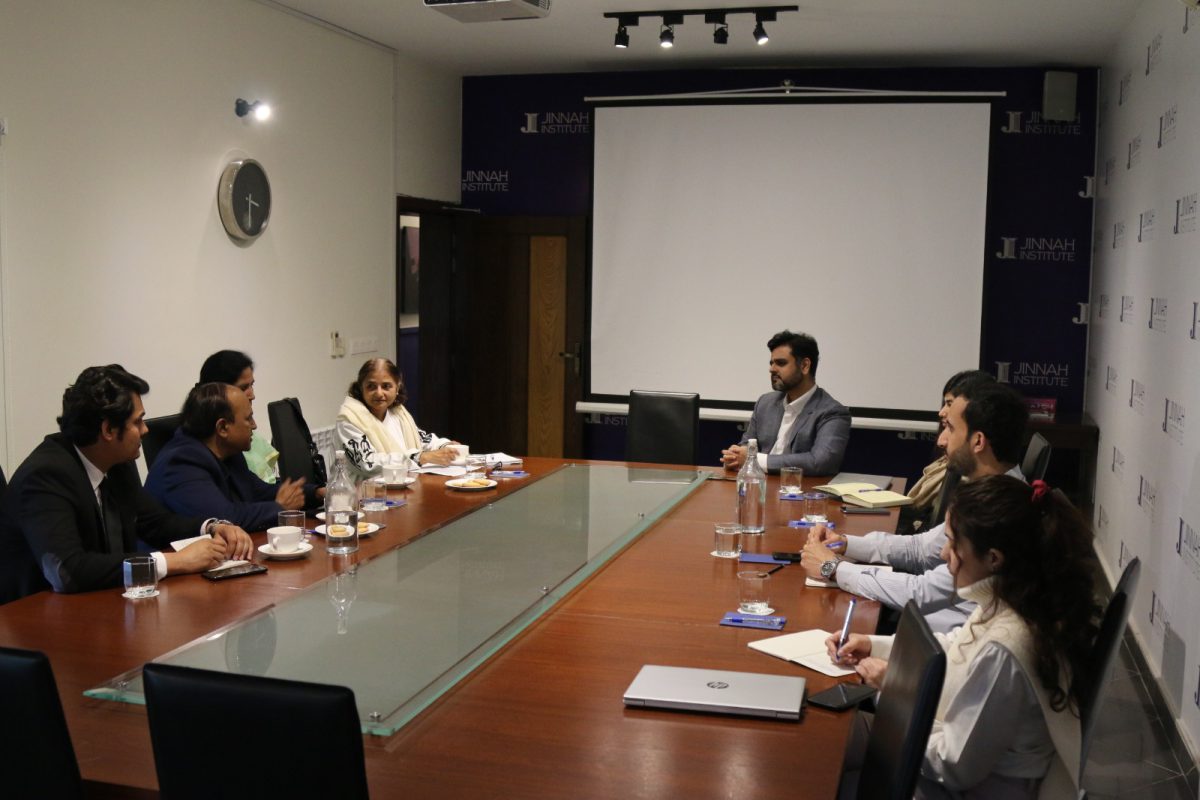Roundtable
Minority Representation in Pakistan: Tackling Neglect and Discrimination
Date: April 7, 2023
The national census currently underway in Pakistan provides an opportunity to enumerate minority communities, and assess the strength of their political representation, as well as their socio-economic well-being. Although minority communities have become more populous since the last census, their representation in parliament hovers around the same percentage as in the 1980s. It is unlikely that parliamentary representation for minorities will see any major augmentation, if at all normalcy returns to legislatures during this prolonged phase of political instability. This was stated by leading human rights defenders at Jinnah Institute’s roundtable session titled ‘Minority Representation in Pakistan: Tackling Neglect and Discrimination’.
Participants highlighted that political party manifestos have traditionally articulated each party’s objectives for the uplift of minority communities and range from employment opportunities to protection from extremist violence. Unfortunately, the economic and political crisis has deprioritized progressive policy debates, and minority rights issues have also been relegated to the political backburner. Despite increasing incidents of violence against religious minorities, there has been little attention paid to minorities in distress. Participants also observed that 2023 may well be an election year, but there is little indication that party manifestos are being drafted yet.
Participants also identified select minority issues that have gone unaddressed by decisionmakers decade after decade. In particular, they discussed the issue of sanitation workers which has suffered from poor documentation as well as policy neglect. Sanitation workers constitute “the most excluded minority” among disadvantaged cohorts who are forced to work under life threatening conditions. 80 percent of Pakistan’s waste workers are from minority communities, usually hired as temporary workers by private sector companies contracted by government. Precarious short-term work means sanitation workers can be fired any time, even after a decade with the same employer, nor are they eligible for basic benefits available to regular employees. For the tens of thousands of sanitation workers countrywide, temporary employment arrangements are the norm by contractors to avoid compliance with labour laws and giving benefits.
Federal and provincial governments have been mandated since 2009 to hire five percent of their employees from minority backgrounds as an affirmative action intervention. However, the Annual Statistical Bulletin of Federal Government Employees 2017-2018 reveals that only 2.8 percent vacancies have been filled, and that too for low-paid jobs. Soliciting government bodies to fill minority vacancies often leads to routine responses citing lack of skill or talent among minorities, participants shared. However, the real challenge is not a skill deficit or poor talent, rather systemic prejudice that creates exclusionary barriers for non-Muslims to progress. Participants observed that government bodies routinely advertise waste worker jobs with the requirement that “only non-Muslims are eligible”, which reinforces only one kind of employment.
Participants urged that all political parties must be encouraged to upgrade their positions on minority rights, in light of recently published evidence on sanitation workers, forced conversions and new extremisms that are evident in the political and social mainstream.

